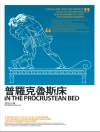Confessions of a Young Man (1888) is a memoir by George Moore. Originally written in French, it is a record of his life in Paris as a young man with money and dreams to spare. Controversial for its depictions of bohemianism and pointed critique of Victorian morality, Confessions of a Young Man has been recognized as an invaluable portrait of nineteenth century Paris and the geniuses who struggled to reshape art in their image. Degas. Renoir. Monet. Zola. Their names are now immortal, instant reminders of their influence on the visual and literary arts. In the 1870s, however, and throughout their lifetimes, they were artists struggling to hone their craft and gain recognition for their work. Into their world came the young George Moore, an Irishman who thought he was a painter and would eventually make his own name as a pioneering modernist writer. In Confessions of a Young Man, he offers his experience and impressions of bohemian life in Paris, a place where the temptations of flesh, drugs, and alcohol led many a young artist astray. In this murky world, he will draw inspiration for his groundbreaking stories and novels in the realist style. This edition of George Moore’s Confessions of a Young Man is a classic of Irish literature reimagined for modern readers.
Since our inception in 2020, Mint Editions has kept sustainability and innovation at the forefront of our mission. Each and every Mint Edition title gets a fresh, professionally typeset manuscript and a dazzling new cover, all while maintaining the integrity of the original book.
With thousands of titles in our collection, we aim to spotlight diverse public domain works to help them find modern audiences. Mint Editions celebrates a breadth of literary works, curated from both canonical and overlooked classics from writers around the globe.
关于作者
George Moore (1852-1933) was an Irish poet, novelist, memoirist, and critic. Born into a prominent Roman Catholic family near Lough Carra, County Mayo, he was raised at his ancestral home of Moore Hall. His father was an Independent MP for Mayo, a founder of the Catholic Defence Association, and a landlord with an estate surpassing fifty square kilometers. As a young man, Moore spent much of his time reading and exploring the outdoors with his brother and friends, including the young Oscar Wilde. In 1867, after several years of poor performance at St. Mary’s College, a boarding school near Birmingham, Moore was expelled and sent home. Following his father’s death in 1870, Moore moved to Paris to study painting but struggled to find a teacher who would accept him. He met such artists as Pissarro, Degas, Renoir, Monet, Mallarmé, and Zola, the latter of whom would form an indelible influence on Moore’s adoption of literary naturalism. After publishing The Flowers of Passion (1877) and Pagan Poems (1881), poetry collections influenced by French symbolism, Moore turned to realism with his debut novel A Modern Lover (1883). As one of the first English language authors to write in the new French style, which openly embraced such subjects as prostitution, lesbianism, and infidelity, Moore attracted controversy from librarians, publishers, and politicians alike. As realism became mainstream, Moore was recognized as a pioneering modernist in England and Ireland, where he returned in 1901. Thereafter, he became an important figure in the Irish Literary Revival alongside such colleagues and collaborators as Edward Martyn, Lady Gregory, and W. B. Yeats.












